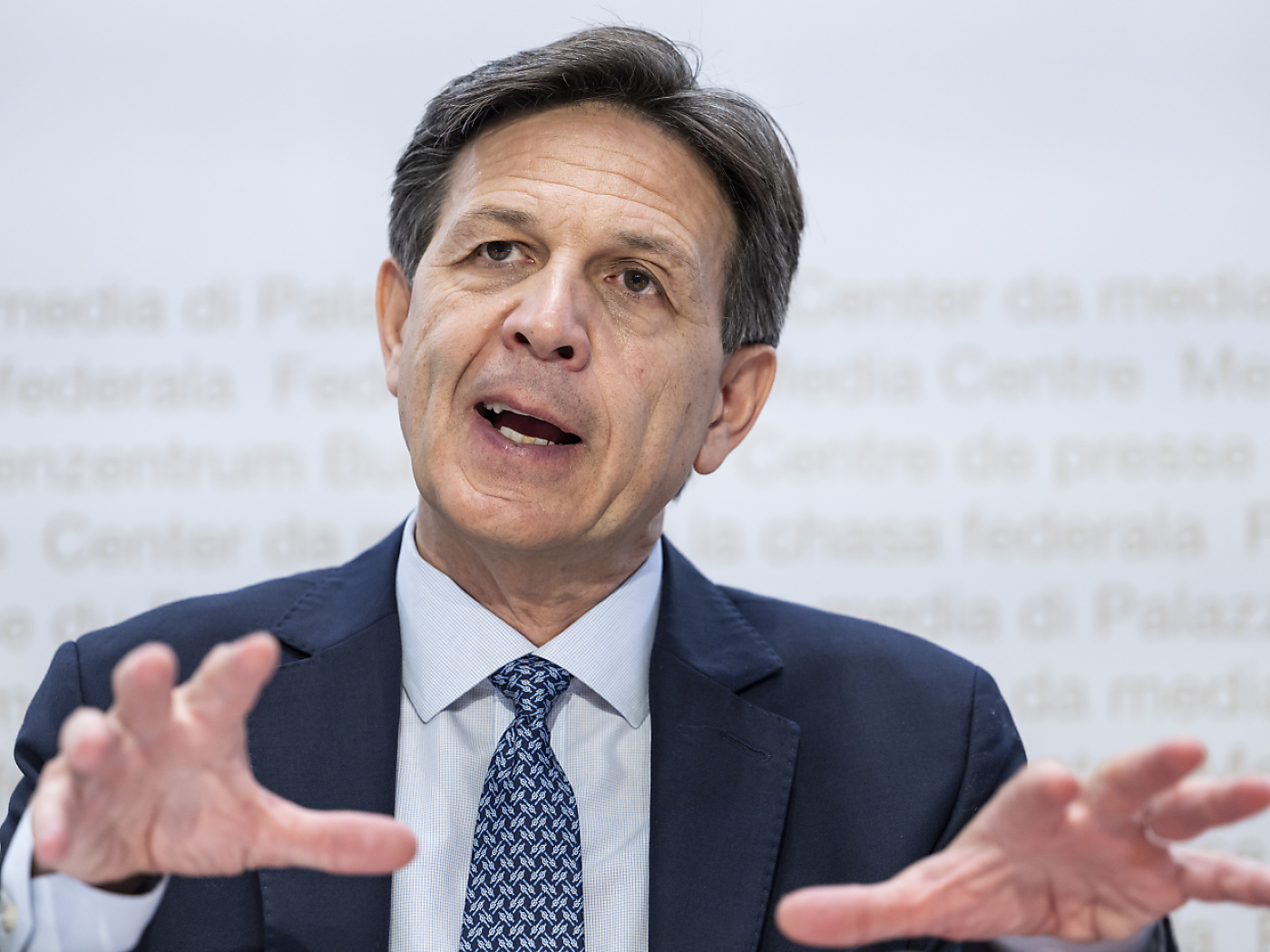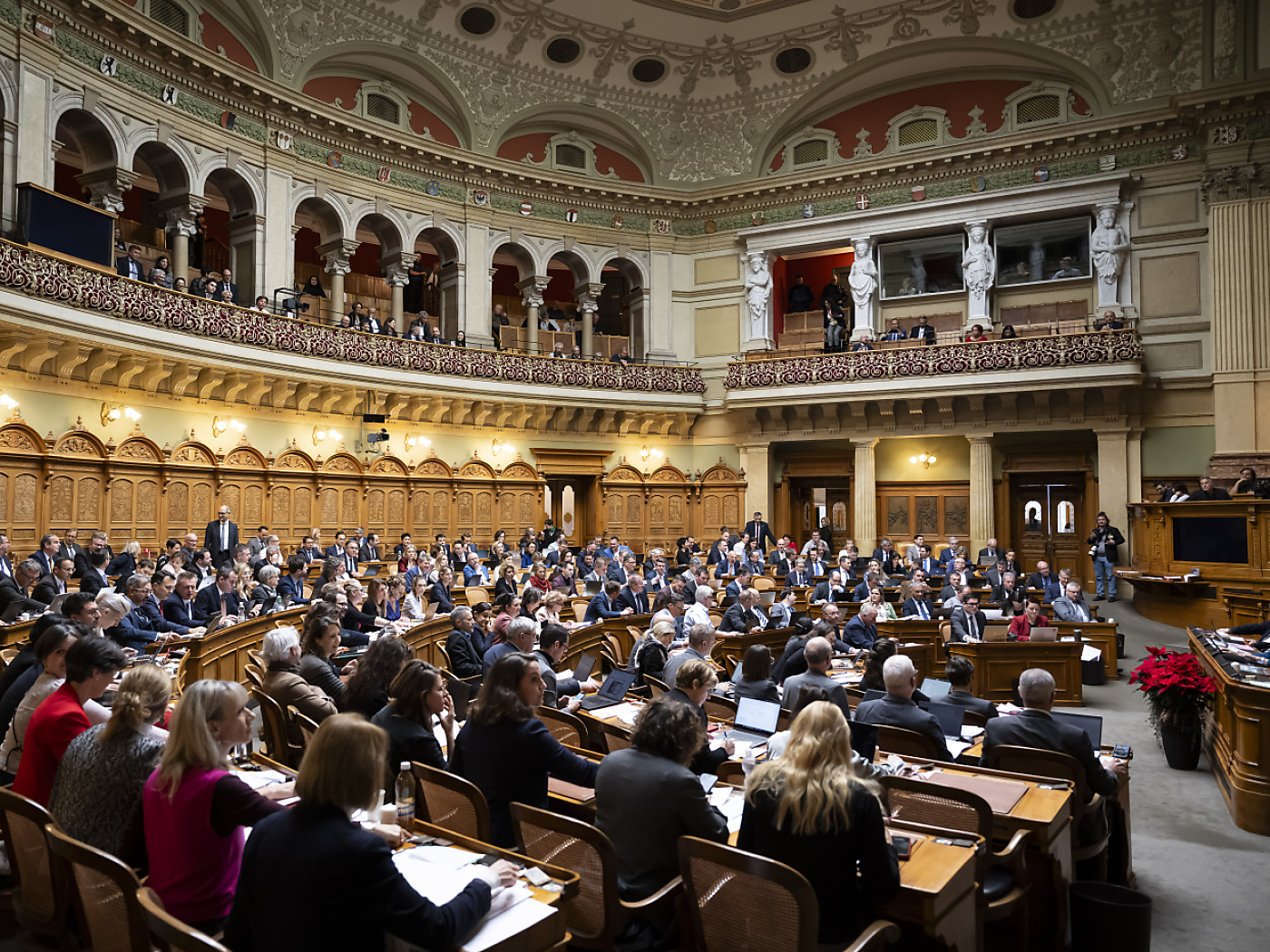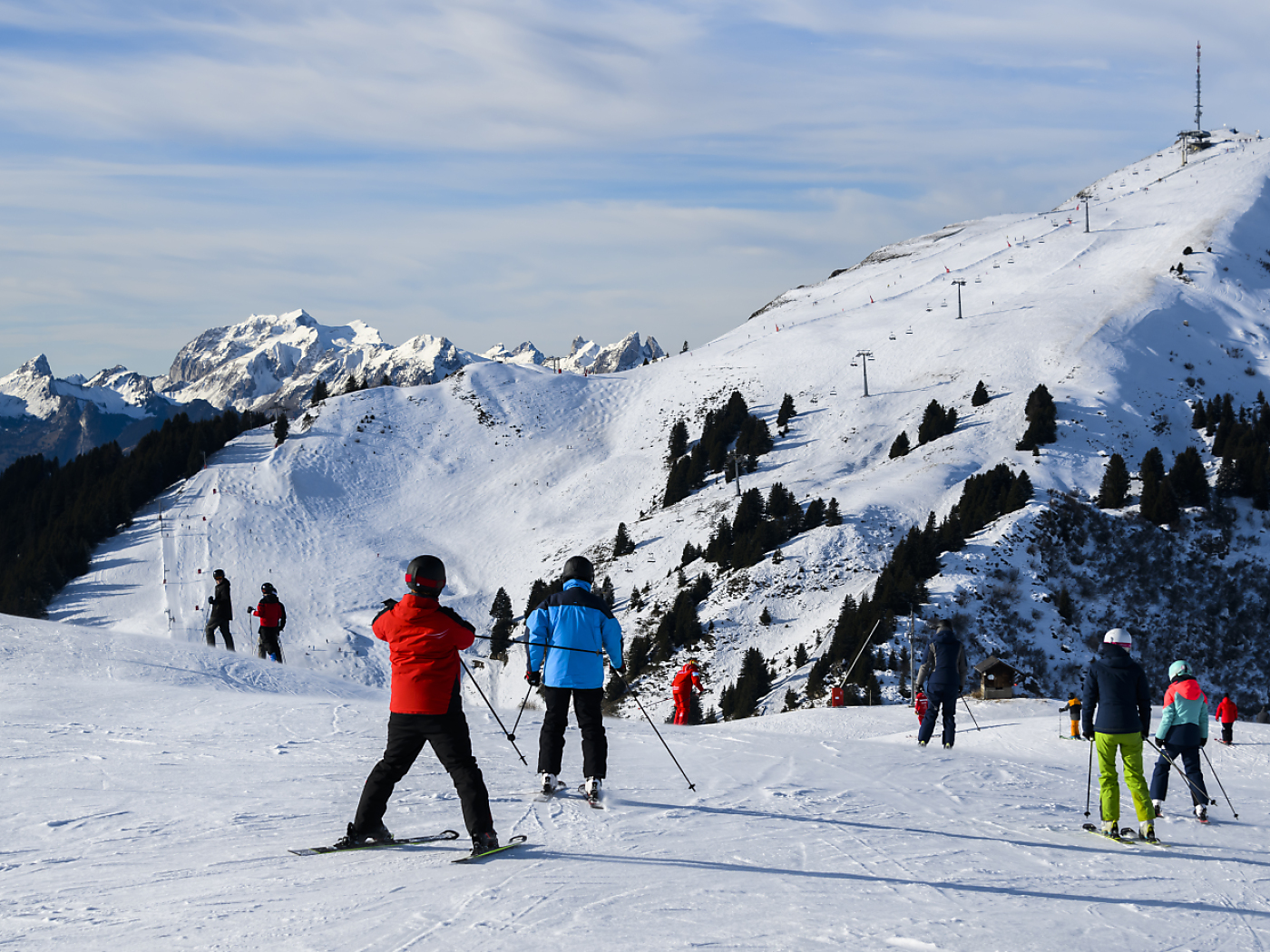Risk of terror attack in Switzerland higher than before
The terrorist threat in Switzerland has increased since the beginning of the year, warned Christian Dussey, director of the Swiss Federal Intelligence Service (FIS). He points to a campaign launched by the Islamic State calling for attacks in Europe.
The Islamist terrorist group “hadn’t done this for a long time. It’s really given a new impetus to the movement, multiplied by social networks”, said Dussey in an interview published on Thursday by the Tamedia group’s newspapers.
+ Get the most important news from Switzerland in your inbox
The most likely risk of attack in Switzerland “is that of an act of violence perpetrated by an isolated individual inspired by jihadism”, he added, citing as an example the anti-Semitic attack committed with a knife by a 15-year-old teenager against an Orthodox Jew at the beginning of March in Zurich. The 50-year-old victim was seriously injured. The teenager claimed responsibility in a video in the name of Islamic State.
In comparison with the evolution of the Islamist terror, threat of violence from the extreme right or left of the political spectrum is rather stable, according to Dussey.
Showboating and psychological problems
Dussey pointed out that some thirty arrests in connection with Islamist terrorist threats have been made in Europe since the beginning of the year. “That’s more than in the whole of last year”. He added that Switzerland is particularly hard hit. In April, three young people aged 15, 16 and 18 were arrested in Schaffhausen and Thurgau on suspicion of terrorist activity.
Dussey explained the radicalisation of younger people as a means of “putting themselves on stage” on social networks and increasing their audience and success. Others suffer from psychological problems.
To counter the Islamist threat, the FIS monitors the internet in close collaboration with foreign intelligence services. Since the September 11, 2001 terrorist attacks in the United States, this collaboration has worked “exceptionally well”. “If a state gets wind of a planned attack in Switzerland, it warns us and helps us to deal with it. And vice versa,” stated Dussey.
Nearly 20,000 intelligence notes are exchanged every year between the FIS and partner foreign intelligence services. “This international collaboration is quite simply indispensable” for the FIS, which is under-staffed and “smaller in size than the police force of the city of Lausanne”.
Ukraine war
This lack of staff has been further undermined by Russia’s invasion of Ukraine in 2022, noted Dussey. “After more than two years of hybrid warfare and the accentuation of the terrorist threat, we have to note that the transformation [launched before the Russian invasion] will not be able to compensate for the FIS’s significant understaffing.” According to him, discussions are underway with the Federal Department of Defense to increase the number of FIS staff.
Dussey added that the war in Ukraine “has developed into a hybrid war, mixing espionage, cyber-attacks, disinformation, sabotage operations and illegal arms transfers”. To this, he continues, must be added the acquisition of technologies, spare parts or components useful to their war effort, some of which are subject to restrictions due to international sanctions against Russia.
“Switzerland is directly and indirectly affected, as this hybrid war is taking place partly on Swiss territory,” according to the FIS head. According to him the FIS is conducting daily operations against this to prevent Switzerland being used as a platform where foreign intelligence services carry out operations against our interests.
Adapted from French by DeepL/ac
This news story has been written and carefully fact-checked by an external editorial team. At SWI swissinfo.ch we select the most relevant news for an international audience and use automatic translation tools such as DeepL to translate it into English. Providing you with automatically translated news gives us the time to write more in-depth articles.
If you want to know more about how we work, have a look here, if you want to learn more about how we use technology, click here, and if you have feedback on this news story please write to english@swissinfo.ch.

In compliance with the JTI standards
More: SWI swissinfo.ch certified by the Journalism Trust Initiative



















You can find an overview of ongoing debates with our journalists here . Please join us!
If you want to start a conversation about a topic raised in this article or want to report factual errors, email us at english@swissinfo.ch.